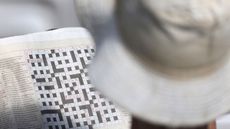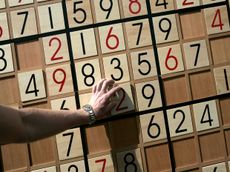Leveson 2: second stage of press inquiry cancelled
Labour criticises Culture Secretary Matt Hancock for abandoning planned probe
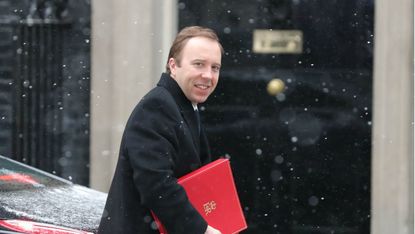
The Government is shutting down the Leveson Inquiry into media standards without implementing its planned second stage, Culture Secretary Matt Hancock has confirmed.
The inquiry, set up by former prime minister David Cameron in 2011 following the News International phone-hacking scandal, was “due to examine relations between journalists and the police” in phase two, reports the BBC.
But Hancock says that the “world had changed” since Leveson’s initial report, in 2012, and that the press has since “cleaned up its act”.
Subscribe to The Week
Escape your echo chamber. Get the facts behind the news, plus analysis from multiple perspectives.

Sign up for The Week's Free Newsletters
From our morning news briefing to a weekly Good News Newsletter, get the best of The Week delivered directly to your inbox.
From our morning news briefing to a weekly Good News Newsletter, get the best of The Week delivered directly to your inbox.
In 2014, four ex-News of the World journalists, including editor Andy Coulson, were convicted of conspiring to intercept private voicemails.
In October 2016, the then government recognised new Leveson-compliant press regulator Impress. Only a handful of publishers have signed up to Impress, however, with most choosing to remain under the aegis of the Independent Press Standards Organisation (Ipso).
In a Commons statement today, Hancock said: “We do not believe that this costly and time-consuming public inquiry is the right way forward.”
“Britain needs high-quality journalism to thrive in the new digital world,” he added. “We seek a press - a media - that is robust and independently regulated. That reports without fear or favour.”
Hancock also announced that the Government would not put into effect a law that would force media organisations to pay legal costs in libel cases whether they won or lost.
Labour’s shadow culture secretary Tom Watson - who has “long campaigned for victims of press intrusion”, notes The Guardian - said the decision to abandon Leveson 2 was “a disappointment, a breach of trust and a bitter blow”, adding: “But it is not in any way a surprise.”
Watson said that numerous media outlets had been “lobbying hard” for the cancellation of Leveson 2 and that Hancock would likely get “plaudits” in Friday’s newspapers and “prosper politically” from the move. He also accused newspapers of “helping write” Hancock’s statement.
Create an account with the same email registered to your subscription to unlock access.
Sign up for Today's Best Articles in your inbox
A free daily email with the biggest news stories of the day – and the best features from TheWeek.com
-
 Will Aukus pact survive a second Trump presidency?
Will Aukus pact survive a second Trump presidency?Today's Big Question US, UK and Australia seek to expand 'game-changer' defence partnership ahead of Republican's possible return to White House
By Sorcha Bradley, The Week UK Published
-
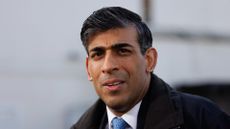 It's the economy, Sunak: has 'Rishession' halted Tory fightback?
It's the economy, Sunak: has 'Rishession' halted Tory fightback?Today's Big Question PM's pledge to deliver economic growth is 'in tatters' as stagnation and falling living standards threaten Tory election wipeout
By Harriet Marsden, The Week UK Published
-
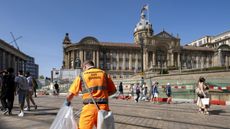 Why your local council may be going bust
Why your local council may be going bustThe Explainer Across England, local councils are suffering from grave financial problems
By The Week UK Published
-
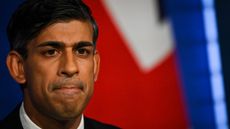 Rishi Sunak and the right-wing press: heading for divorce?
Rishi Sunak and the right-wing press: heading for divorce?Talking Point The Telegraph launches 'assault' on PM just as many Tory MPs are contemplating losing their seats
By Keumars Afifi-Sabet, The Week UK Published
-
 How would a second Trump presidency affect Britain?
How would a second Trump presidency affect Britain?Today's Big Question Re-election of Republican frontrunner could threaten UK security, warns former head of secret service
By Harriet Marsden, The Week UK Published
-
 'Rwanda plan is less a deterrent and more a bluff'
'Rwanda plan is less a deterrent and more a bluff'Instant Opinion Opinion, comment and editorials of the day
By The Week UK Published
-
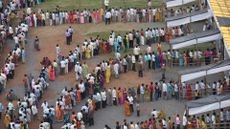 How the biggest election year in history might play out
How the biggest election year in history might play outThe Explainer Votes in world's biggest democracies, as well as its most 'despotic' and 'stressed' countries, face threats of violence and suppression
By Harriet Marsden, The Week UK Published
-
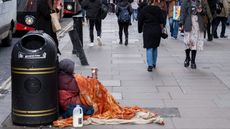 'Good democracies include their poorest citizens. The UK excludes them'
'Good democracies include their poorest citizens. The UK excludes them'Instant Opinion Opinion, comment and editorials of the day
By The Week UK Published
